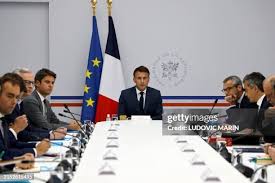Emmanuel Macron: Influence and Challenges in Modern France

Introduction
Emmanuel Macron, France’s youngest president, took office in May 2017 and has since been a pivotal figure in European and global politics. His leadership has sparked considerable debate about economic reforms, social policies, and France’s role within the EU. With several challenges on the horizon, including economic recovery post-pandemic and political unrest around pension reforms, Macron’s actions and policies are essential for understanding the current landscape of French politics.
Macron’s Major Initiatives
Macron, representing the centrist party La République En Marche!, initiated multiple reforms aimed at transforming France’s economy and improving its global standing. His government has invested heavily in green energy initiatives, education, and technology, positioning France as a leader in sustainability. Furthermore, Macron has been an advocate for European unity, often calling for stronger cooperation among EU member states, particularly in response to climate change and geopolitical challenges.
Recent Developments
As of late 2023, Macron has been navigating complex political waters due to rising dissent against his proposed pension reforms, which seek to raise the retirement age from 62 to 64. Protests have been widespread, with unions and opposition parties voicing strong opposition to these changes. In response, Macron has reiterated the necessity of such reforms to ensure the sustainability of France’s pension system amidst an aging population. Polling indicates that while public support for Macron’s overall leadership has fluctuated, many voters remain divided on pension reform specifically.
Foreign Policy and Europe
On the international front, Macron’s leadership has been significant as France seeks to carve out a strategic role on the global stage. His administration has been vocal in supporting Ukraine in its conflict with Russia, advocating for increased sanctions against the Kremlin while enhancing military support for Ukraine. Macron has also spearheaded discussions on migration policies within the EU, promoting more equitable burden-sharing among member states as migration continues to be a pressing issue.
Conclusion
Emmanuel Macron’s presidency represents a crucial period for France. As the country faces financial and social challenges, his ability to implement reforms successfully will likely dictate the future political climate. The coming months will be pivotal in determining whether he can balance opposition to his policies with the need for significant change, all while maintaining France’s influential role in Europe and beyond. Understanding Macron’s leadership style and policies grants valuable insights into the evolving political landscape of France.









